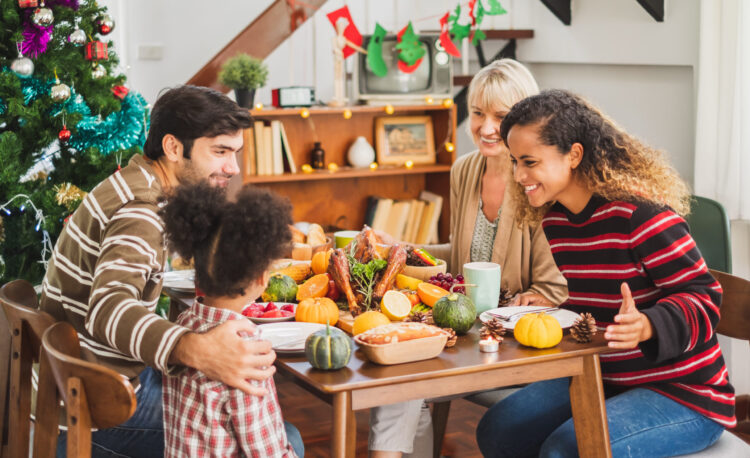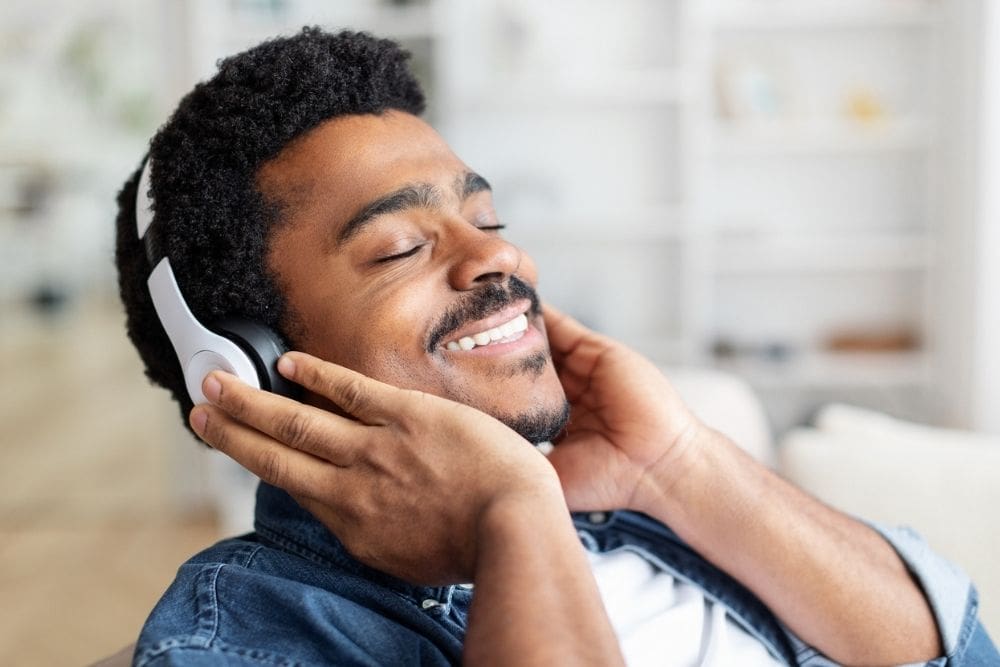If you’ve recently graduated from an inpatient addiction treatment program or you’re continuously showing up for yourself in an intensive outpatient program, you may be wondering how to navigate the winter holidays without substances.
One of the biggest concerns for our patients is family dynamics during dinners and holiday parties. Family gatherings are a wonderful opportunity for sharing in mutual joy, catching up, and recharging. People in recovery also greatly benefit from their loved ones’ support.
However, family interactions can also dredge up unique stressors that may trigger cravings or, in some cases, relapse. Everyone at St. Gregory wants to help you achieve meaningful, safe family interactions this holiday season. These tips can help you protect your emotional boundaries to ensure your holidays are safe, happy, and filled with good memories.
The First Step: Taking a Step Back
One study shows that self-awareness helps to work against substance abuse and relapse. Building self-awareness during cognitive behavioral therapy (CBT) with us in Bayard can be a key component of emotional regulation and psychological balance during difficult moments in recovery. A few days before your family dinner, take out a piece of paper or your journal and ask yourself the following questions. Answer honestly to get an accurate reading of your headspace:
- What are my main recovery values? What types of character traits am I trying to embrace?
- What conversations, situations, or dynamics might negatively affect me at the function and challenge my sobriety?
- What do I need in any given environment to maintain my emotional well-being and stability in sobriety?
Once you have answers to these questions, you can begin to build your boundaries. Always keep in mind that your recovery comes first, so if you already know your boundaries will be broken at the holiday function, seriously consider skipping it.
Communicate Your Dinner Table Boundaries
There are several ways you can communicate with loved ones about your emotional needs during the holidays:
- One-on-one conversations are a great idea, as they can land much better than group announcements.
- Use “I” statements to express your needs. Here’s an example: “I know this changes our typical family dinner dynamic…but being around alcohol right now may tempt me to drink again. Is it possible to make the dinner party alcohol-free this year?” You can also explain that drug-free environments are proven to help you stay clean.
- If necessary, alert your family to your recovery needs: “I need to leave by 8 PM to attend my group meeting,” for example.
- Be specific about what you need to feel supported. If you need to avoid certain topics (like the time you hit rock bottom or certain disappointments you or your family may have experienced) communicate that. If your family tends to ruminate about past or present struggles, and these topics create anxiety for you, ask if they can be shelved for the night.
If your friends or family are interested in learning more about how they can support you and gain more knowledge about addiction, you can point them in the direction of our family program for addiction recovery!
Techniques For Handling Unforeseen Triggers During Meals
- Pause for 10 seconds and take a deep breath before responding to difficult questions.
- Feel free to excuse yourself from the table to get some air and step outside for a reset.
- Go to a different room and use any grounding techniques you’ve learned in recovery.
- Be sure to have an exit strategy in place before arriving for dinner (this can include asking a trusted, dependable friend to answer calls for a pickup, planning a very specific time to leave, looking up which recovery meetings are available, scheduling an Uber, or keeping your car keys handy).
- Try not to dwell too long on feelings of guilt or shame if you have to enact an exit plan when loved ones break boundaries.
Get Addiction Recovery Support in Iowa This Winter
Your next family party or friend get-together doesn’t have to be a painful or triggering experience; it can be modified to fit your needs and build community! From bringing your own non-alcoholic beverages to bringing a supportive mentor or friend to your family dinner, St. Gregory is always here to recommend a sobriety maintenance tool that works for your relapse prevention. If you feel that you or a loved one needs a little extra support this holiday season, please contact us today. We’re here to help!











